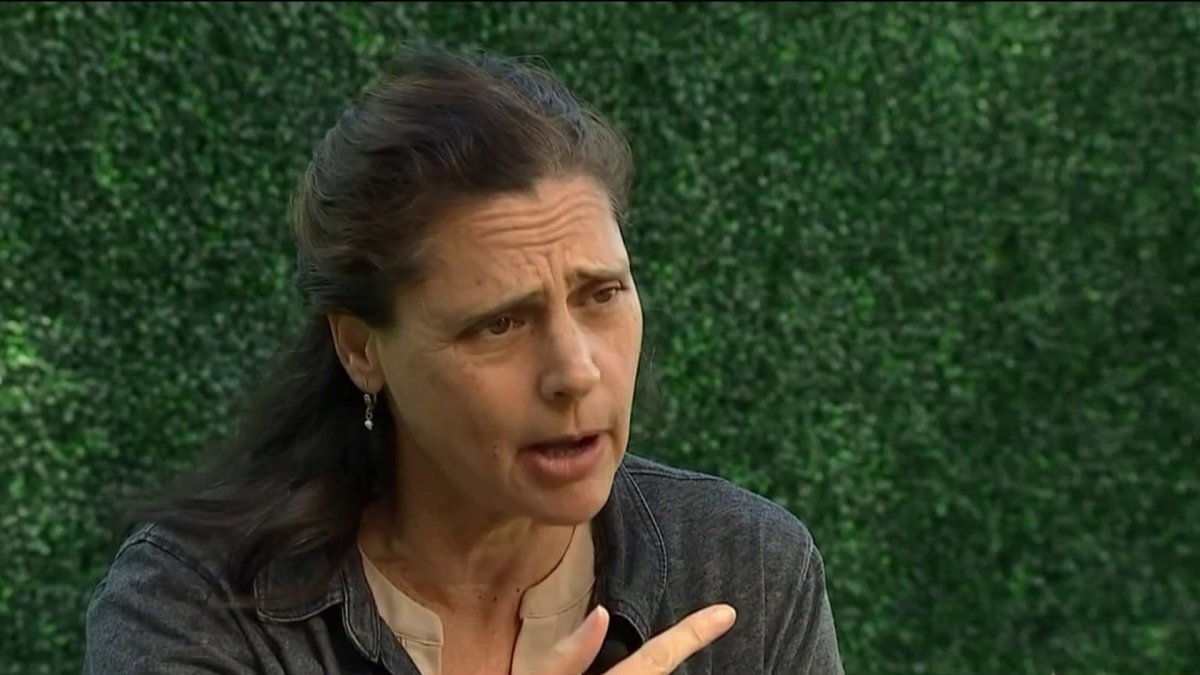Hamas victims travel from Israel to Miami as Hanukkah begins – NBC 6 South Florida
They are neighbors from a devastated kibbutz in Israel, and now they’ve traveled together to South Florida, determined to talk to anyone who will listen about their experience.
Ofrit Zadikevitch and Avi Shamriz want the world to know what’s happening now in Israel and not to forget about the barbaric Hamas terror attack on October 7th which started the war in Gaza.
On this first night of Hanukkah, Shamriz has one wish.
“I want my son to be released today,” he said.
Alon Shamriz was abducted and is still being held hostage in Gaza. He’s 26 years old, an Argentinian citizen, a big fan of Leo Messi, and his dad says the family has no idea how he’s doing.
“If he’s injured, if he’s alive, we don’t know anything about this,” Shamriz said. “For us it’s like hell, every day we’re seeking information.”
I asked him if he thought the Israeli government was doing enough to get the hostages out.
“No, I don’t, our government is a weak government, they are not thinking of my son or the rest of the hostages, they’re just talking,” Shamriz said. “140 hostages are still there, and the government is not doing enough to release them.”
Shamriz and Zadikevitch lived in Kfar Aza. The kibbutz was overrun by 200 Hamas gunmen. Zadikevitch was away visiting family, and then the WhatsApp messages started rolling in.
“They’re going from one house to another and just kill us, they kill citizens, unarmed, what can they do?” Zadikevitch said, saying she could tell when someone died because the messages would stop from that person.
Her husband, Omer, an avid surfer, was shot and killed in his car. The family is shattered and 63 friends and neighbors are dead as well.
“I still live on Oct. 7, I didn’t go forward, before I go to sleep I think about all my friends, I think about my friend, Aviv, when they found him in his bedroom, covering his family, his wife, Livnat, the kids, all of them dead,” Zadikevitch said.
The kibbutz residents were mostly peace activists. One of Zadikevitch’s friends, for example, volunteered every Tuesday to take sick kids from Gaza to hospitals in Israel.
“Drive them to the hospital, a kid with his mom, waiting for 8 hours, 10 hours until he would finish the treatment, and bring them back home, she got killed, she got murdered,” Zadikevitch explained.
She illustrates one of the casualties of the Hamas attack, the idealism of the Israeli peace community is gone. They feel betrayed after building bridges in Gaza, only to see them burn in a brutal frenzy of murder, rape, and destruction.
Now everyone in Israel is hoping and praying for the hostages to come home safely.



:no_upscale()/cdn.vox-cdn.com/uploads/chorus_image/image/72536807/1608476266.0.jpg)